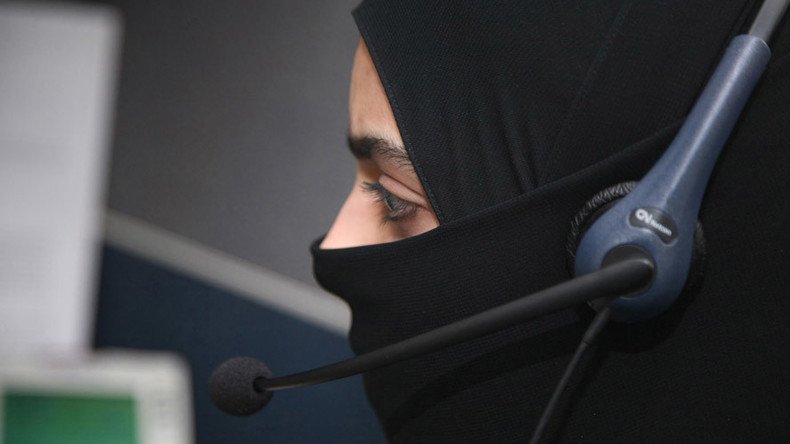‘Banning headscarf at work is ok, if crucifix goes as well,’ EU Court advisor says

European companies can prohibit Muslims from wearing headscarves at work as long as they also forbid other religious symbols, according to a top legal adviser to the European Court of Justice.
“While an employee cannot leave his sex, skin color, ethnicity, sexual orientation, age or disability at the door upon setting foot on his employer’s premises, he may be expected to curb the exercise of his religion in the workplace,” Juliane Kokott, German Advocate General at the EU Court of Justice in Luxembourg, said in a statement on Tuesday.
She added, that such a ban “may […] be justified in order to enforce a legitimate policy of religious and ideological neutrality pursued by the employer.”
The ban must therefore become “a general company rule” concerning any religious symbols for it to be “proportional.”
Kokott’s statement comes as the EU court is considering the case of Samira Achbita, a Muslim receptionist who was fired from a G4S office in Belgium for refusing to come to work without her head scarf. She sued G4S, a major London-based security services company, for damages in Belgian courts, but lost the case on two occasions.
The courts decided that G4S had not breached the EU’s anti-discrimination laws when it fired the receptionist, deeming the company’s dress code, which bans religious clothing, legal as long as it applies to all faiths and political views equally.
Achbita then appealed to Belgium’s Court of Cassation, which asked the European Court of Justice for “clarification” before coming up with a final ruling.
In her statement, Kokott said that “because of the special nature of the work which G4S employees do” the firm was in its right to adopt a policy banning religious symbols. Furthermore, she added that any religious paraphernalia could have “a defining impact […] on the image of the firm.”
“A company rule such as that operated by G4S could just as easily affect a male employee of Jewish faith who comes to work wearing a kippah, or a Sikh who wishes to perform his duties in a turban, or male or female employees of a Christian faith who wish to wear a clearly visible crucifix or a T-shirt bearing the slogan ‘Jesus is great’ to work,” Kokott wrote.
She noted, however, that the debate over Achbita’s case is of great “social sensitivity” and should be dealt with accordingly, given that Europe is currently seeking a way to integrate an increasing number of Muslim migrants flowing in from the war-torn Middle East.
Though Kokott’s opinion is not binding, it may indicate what the final EU court decision might state.
READ MORE: 'Essential to see each other': Danish school bans Muslim students from wearing niqab
This is not the first time the public display of Muslim symbols and dress has raised concerns in European countries, especially the niqab, a full veil that only leaves a small opening for the eyes, and the burqa, a full-face veil. Most recently, in April, an adult education center in a Copenhagen suburb told six female Muslim students that they could no longer attend classes if they didn’t take off their niqabs. France and Belgium have already banned the niqab and the burqa nationwide, and they are also forbidden in public in parts of Switzerland and Italy.













